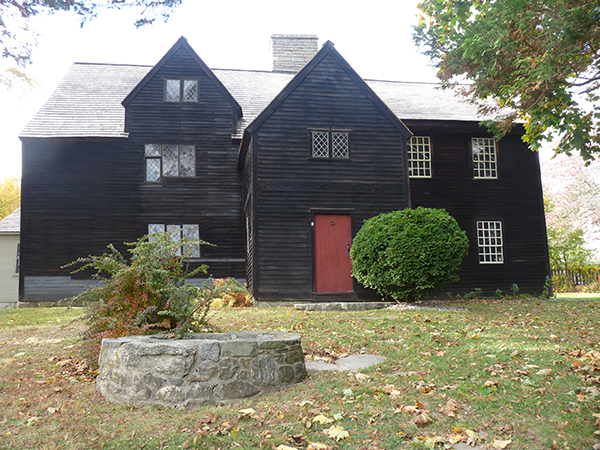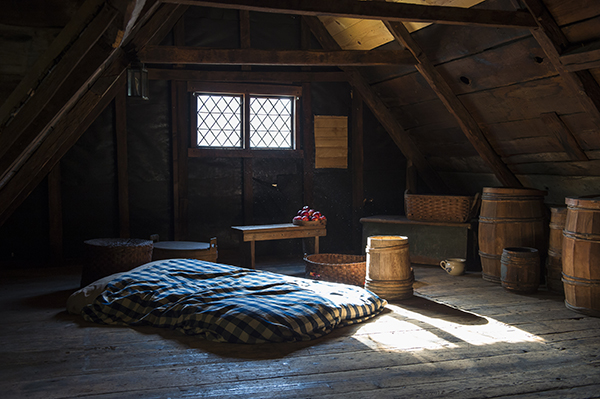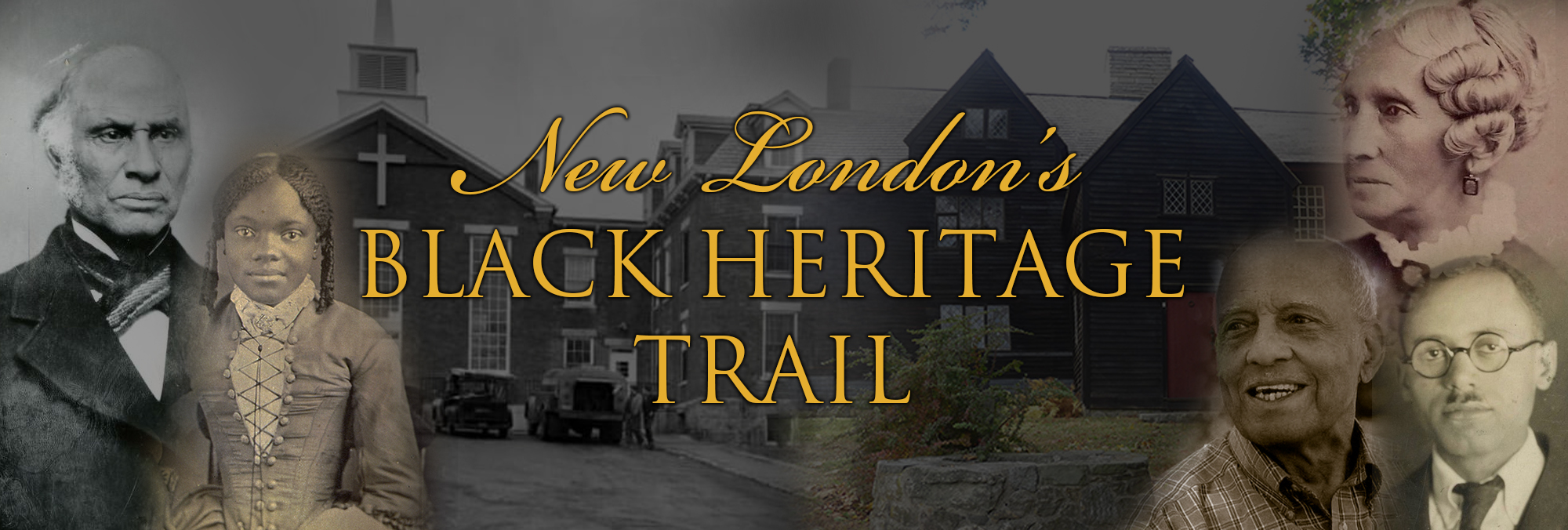
1678 Hempsted House, photo courtesy Hempsted Houses, New London, owned and operated by Connecticut Landmarks.
Adam Jackson
By Nicole Thomas
Adam Jackson was born into a life of chattel slavery circa 1700. His father, John Jackson of New London, had been transported from the West Indies in 1686, but by 1700 had secured his freedom. Shortly thereafter, John married Joan, who was enslaved to the Fox family. Despite John’s status as a free man, Adam and his youngest sister Miriam were enslaved because the Partus law of 1662 stated that children inherited their mother’s status.
We don’t know much about young Adam’s life, but his parents’ lives are well-documented due to a lengthy court battle in which Joan attempted to secure her freedom. She briefly succeeded in 1703, but her freedom was short-lived. By 1710, Joan and her older children (who had been born when Joan was legally free) would become re-enslaved to the Fox family. The children remained together in the Fox household until 1727, when Samuel Fox died.
Joshua Hempsted, the diarist, would refer to Joan’s legal case throughout his diary. He first mentioned her in October of 1725, writing that he was summoned to the court to give testimony regarding “Black Adam.”
This provides our only chance to hear Adam speak in his own words rather than being described in Joshua Hempsted’s diary. According to a witness in court records, Adam told the court that “John and Joan Jackson are my parents.” Adam knew where he came from, despite being separated from his family as a toddler.
After Samuel Fox’s death, Joshua Hempsted arrived to settle the estate. Being familiar with Adam and his work, Joshua purchased him on Thursday, September 21, 1727 for eighty-five pounds. He put down five pounds, with the rest to be paid in one year with interest. Adam was twenty-seven years old.

Adam’s Garrett, photo courtesy The Hempsted Houses, New London, owned and operated by Connecticut Landmarks.
Adam’s daily life enslaved to Joshua Hempsted
Adam Jackson was a consistent and dutiful worker, skilled in animal husbandry and farming. If he ever tried to run away, there’s no mention of it in Joshua Hempsted’s diary. With family nearby, the tenuous bond he had with them would have been lost if he’d left the area.
Adam often worked unsupervised, traveling from the Hempsted property in New London to their property in Stonington, loading and unloading ships and bringing produce and other goods to market. He was able to travel about town without raising eyebrows during the day, or even in the early evening.
Joshua’s diary rarely mentions days when Adam was unable to work due to illness or other causes. If Adam broke something while working, Joshua fixed it. Joshua never mentions whipping or otherwise punishing Adam.
Jackson sometimes took trips to Norwich to attend the Negro Election Day, when the local free and enslaved Black population would elect Black Governors to mediate between the Black and white communities. Adam would have been familiar with some of these men, having supervised and worked alongside them.
On very rare occasions, Adam skipped work to be with his friends. Joshua once wrote that Adam missed a day of work and was caught by the constable with friends. After the constable fell asleep, Adam slipped away and returned to the Hempsted household. Because Blacks were not allowed to travel after dark without a pass, Adam would have learned to exercise extreme caution when being out late without Joshua’s permission.
Adam never married or had children. In the Hempsted diary, Joshua noted that “negro Adam’s child died, aged 5.” This is considered a mistake in the diary, but it does prompt some curiosity regarding Adam’s lack of marriage and children.
Economic Impact of Adam Jackson’s labor
Adam was forced to labor for Joshua Hempsted for thirty years. When Joshua first purchased Adam, Joshua did the majority of the work and Adam helped. As Joshua grew older, Adam took over the majority of the work and Joshua helped, when he wasn’t marrying couples, writing wills or carving letters for gravestones. Together, Adam and Joshua laid out and repaired many of New London County’s roads, some of which we still travel today.
Although it appears that there was little conflict between the two men—at least in Joshua’s telling–it is hard to imagine that Adam didn’t resent working so hard as Joshua increasingly took on less physically demanding work.
Joshua held many positions in his local community, and he often made trips to Long Island, Boston and Maryland. He collected debts owed for other prominent people in town. When Adam was shorted wages after being hired out to other property owners, Joshua collected them. We don’t know if Adam received any of these wages or if Joshua kept them all.
Occasionally, Adam accompanied Joshua on some of his journeys. More frequently, he stayed behind to work with the Hempsted grandsons, cultivating the land and harvesting the crops. For Joshua, this made economic sense: Adam’s forced labor freed him to travel and handle other business.
In 1731, a year after Adam’s mother Joan’s death, Joshua briefly hired Adams’ father, John Jackson, to work alongside Adam as a day laborer. There’s no mention in Joshua’s diary of what this meant to Adam.
By 1734, when John Jackson’s health was failing, Joshua stepped in to enforce a 1702 law that required slaveowners to care for elderly or frail former slaves or enslaved members of their household. Thus, John Jackson’s master, John Rogers, Jr., was forced to provide for Jackson until his death in 1737, according to Joshua’s diary.
Without Adam Jackson’s unpaid, skilled labor, Joshua Hempsted would not have been able to break away from his agricultural work long enough to become a Justice of the Peace or to pursue other ways of earning money. Although Adam was the only slave Joshua ever owned, the value of his forced labor enabled Joshua to become a civic leader and build generational wealth.
Adam’s final days: a free man
Upon Hempsted’s death in November of 1758, Adam is listed in the estate inventory as “an old negro man named Adam.” In 1760, Adam shows up in the historical record as a free man.
In 1764, Adam makes his final appearance on the local tax rolls, an old man with no more than two pounds to his name. We don’t know whether he was freed by a Hempsted heir or whether he purchased his freedom. He probably died in 1764 or shortly thereafter. As of this writing, the final resting place of Adam Jackson remains unknown.

Joshua Hempsted’s will, photo courtesy the Hempsted Houses, New London, owned and operated by Connecticut Landmarks.

